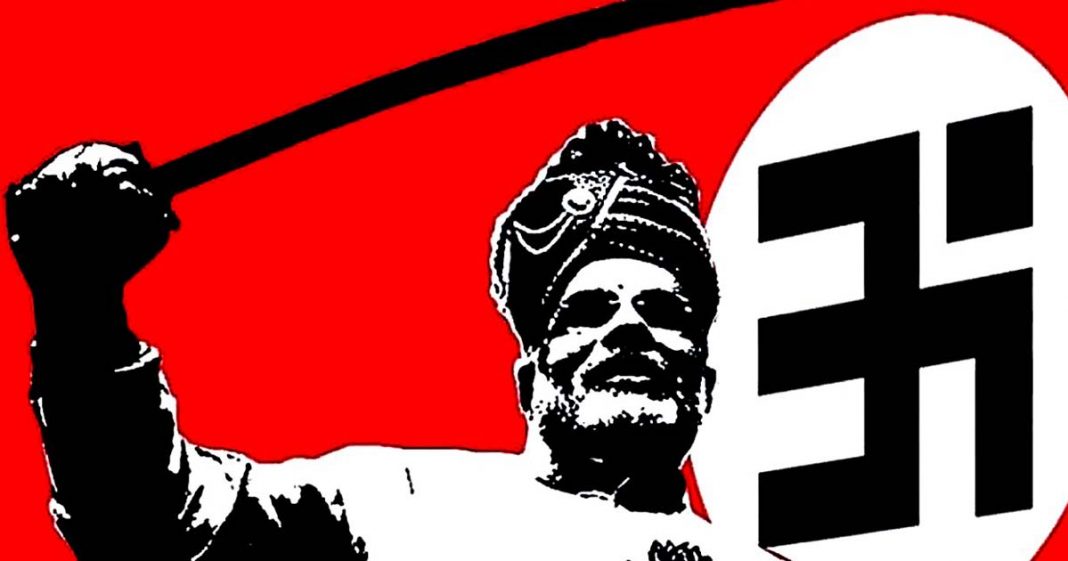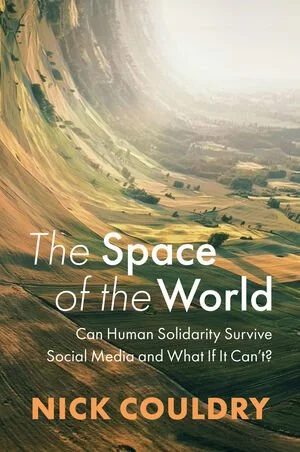The primary reason for US’ vehement opposition to China’s rise to a great (and eventually) superpower status is due to the threat it believes Beijing poses to the world order that Washington credits itself with formulating and upholding. China is perceived as intent on denouncing or altering tenets of the current order in an effort to realign them with its own interests. Given the US’ push, the entire international political debate revolves around this so- called ‘emerging order.’ One of the most prominent features of the US’ pushback against China is entering into major defence cooperation agreements worth billions of dollars with India.
Apart from how this relationship is destabilising for South Asia, another problem is that today’s India – the lynchpin of US’ strategy to contain China from threatening the US-led international order is itself a threat to that system. The most glaring example of this is the gradual rise of an India which is no longer secular nor democratic, rather it is a ‘fascist India.’ Flagrant violations of human rights and atrocities against humanity – mostly endorsed by the state – are becoming the new normal in the country. The run up to and the onset of the year 2022 saw the atrocities against religious minorities intensifying in the country. While examples of this oppression are too many to cite, some of them are discussed below.
The egregious ‘Bulli Bai’ episode is one such example. Pictures of prominent female Muslim activists, journalists, artists, etc. were displayed on an app for online ‘auction’ as the ‘Muslim maid of the day’. This marks another episode of an increasingly radicalising India. In this India, human beings are degraded, and demonised on the basis of their gender, religious and political beliefs. The main culprits behind the ‘Bulli Bai’ episode were four young students aged 18-21, the latter in itself indicative of the ideological inclinations of India’s next generation. Although, harassment of female activists on social media sites like Twitter is rampant in India, however, this particular episode wasn’t just gender-based violence. The terms ‘sulli’ and ‘bulli’ denote derogatory pronouns for Muslim women. Their usage indicates that the online abuse directed against these women emanates from hatred against Muslims. Incidents like this serve as an impetus for instigating more violence in real life against individuals belonging to the community. Hence, this also forms a basis for cultural violence which legitimizes direct and structural violence. The case of young Muskan Khan, a 19-year-old student from Karnataka who was harassed by a Hindu far-right mob trying to stop her from entering her college wearing a hijab, is the most recent case of this oppression. Karnataka state has issued directives to ban all religious clothing inside campuses, especially targeting Muslim females donning the hijab.
Moreover, prominent Indian Hindu leaders openly called for massacring Muslims. There has been complete silence by the government, with no reprimand of those involved in such explicit calls. This essentially points not only towards the state’s complete endorsement of such incidents but also the politicisation of India’s state institutions. A number of Supreme Court lawyers wrote to Chief Justice of India to take suo moto notice of these incitement calls. However, it took the judges of the apex court multiple weeks to intervene and call for an investigation.
Such oppression is not limited to only Muslims; other religious minorities like Christians, as well as communities of the lower strata of the Hindu caste system are exposed to similar persecution. Indian Christians faced unprecedented persecution during their most sacred religious event of Christmas in December last year. Churches were mobbed and Christians offering their prayers were attacked. Church services were cancelled, and churches were closed down over threats from Hindu radicals. This violence was not just limited to physical abuse, Christians also faced financial marginalisation. The prominent Mother Teresa’s charity that assists some of the most underprivileged Christians in the country was also targeted and its bank accounts were frozen for over two weeks by the Indian government.
A recent report by Global State of Democracy has accused India of ‘excessive use of force to enforce COVID-19 rules; harassment against Muslim minorities; internet obstructions; and lockdowns, particularly in Kashmir.’ The reason behind this is not surprising – the ‘rise of illiberal and populist leaders’ to government offices over the last decade. The report revealed that Freedom of Expression, Freedom of Association and Assembly, and Freedom of Movement has also been declining in the country during the period of such illiberal governments.
Now, even speaking for what’s right comes at a cost in India. Earlier, a Human Rights Watch report highlighted that ruling the ‘Bharatiya Janata Party has been increasingly harassing, arresting, and prosecuting rights defenders, activists, journalists, students, academics, and others critical of the government or its policies.’
Such intolerant policies are inevitably leading towards rising instability and chaos at every level in India. However, the United States continues to support India militarily even though the state has become a breeding ground for intolerance, ethnocentrism, and fascism. Keeping quiet over India’s atrocities against humanity also raises a question mark on US’ credibility as a champion of the current so-called ‘rules-based order’. As the US’ military assistance to India continues without any accountability, it is essentially nourishing a fascist state in a bid to preserve its own hegemonic interests and counter China.
Khansa Qureshi is a researcher at Centre for Aerospace & Security Studies (CASS), Islamabad, Pakistan. She can be reached at [email protected]
Image source : Jaaved, Amjad. 2020, “The Great Transformation: How is RSS transforming India into a fascist regime?,” Global Village Space, October 8, https://www.globalvillagespace.com/how-is-rss-transforming-india-into-a-fascist-regime/





